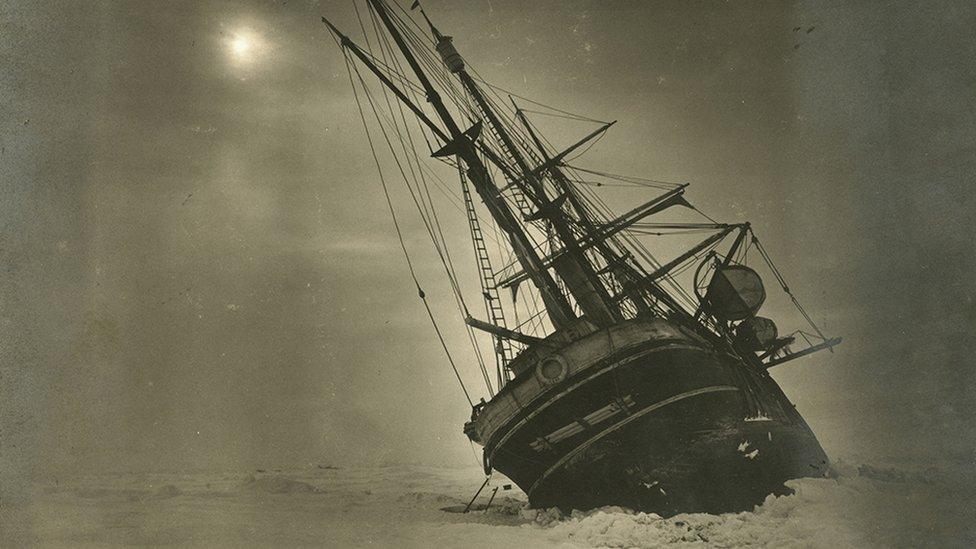Shackleton ship model brought from Ukraine to Cornwall
- Published
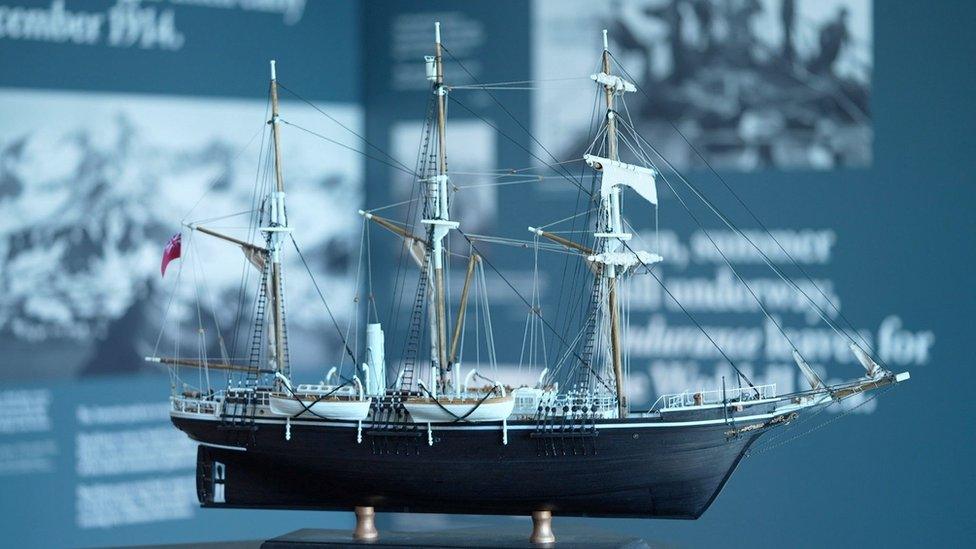
The scale model of the Endurance and its story will now be part of a new exhibition at the Shipwreck Treasure museum
A replica of a famous ship has made its way to a Cornish museum from the Ukrainian war zone where it was built.
The intricate model of Ernest Shackleton's Endurance was made by retired engineer Vitaliy Vrubel in his Dnipro home as war raged around him.
He and his wife were forced to flee when the conflict escalated, but his finished model lay in wait for the day it could be collected.
A former South African soldier rescued the replica which is now in Cornwall.
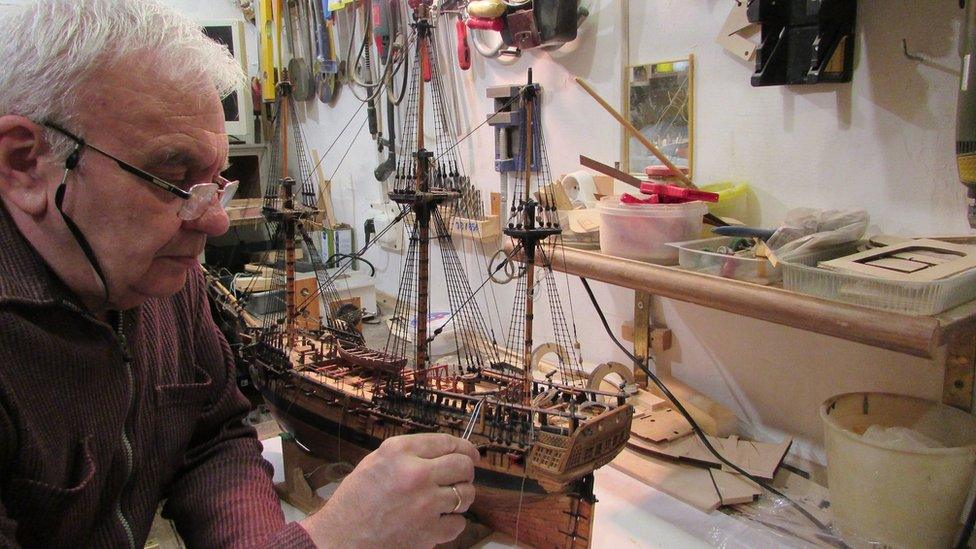
Vitaliy Vrubel started making model ships after retiring
The build
The Shipwreck Treasure Museum in Charlestown commissioned Mr Vrubel to build the ship in 2022.
It saw a LinkedIn post from his daughter asking if anyone could store his beloved collection of model ships, skilfully created since his retirement as a rocket engineer.
The museum wanted a model of the Endurance for its Shackleton exhibition.
The Endurance was central to a story of heroism and endurance that has inspired people for more than 100 years.
The shop got stuck in ice in Antarctica in 1915, leaving Ernest Shackleton to cross the treacherous Southern Ocean, and traverse the island of South Georgia to get help for his crew, all 27 of whom survived for two years on the ice.
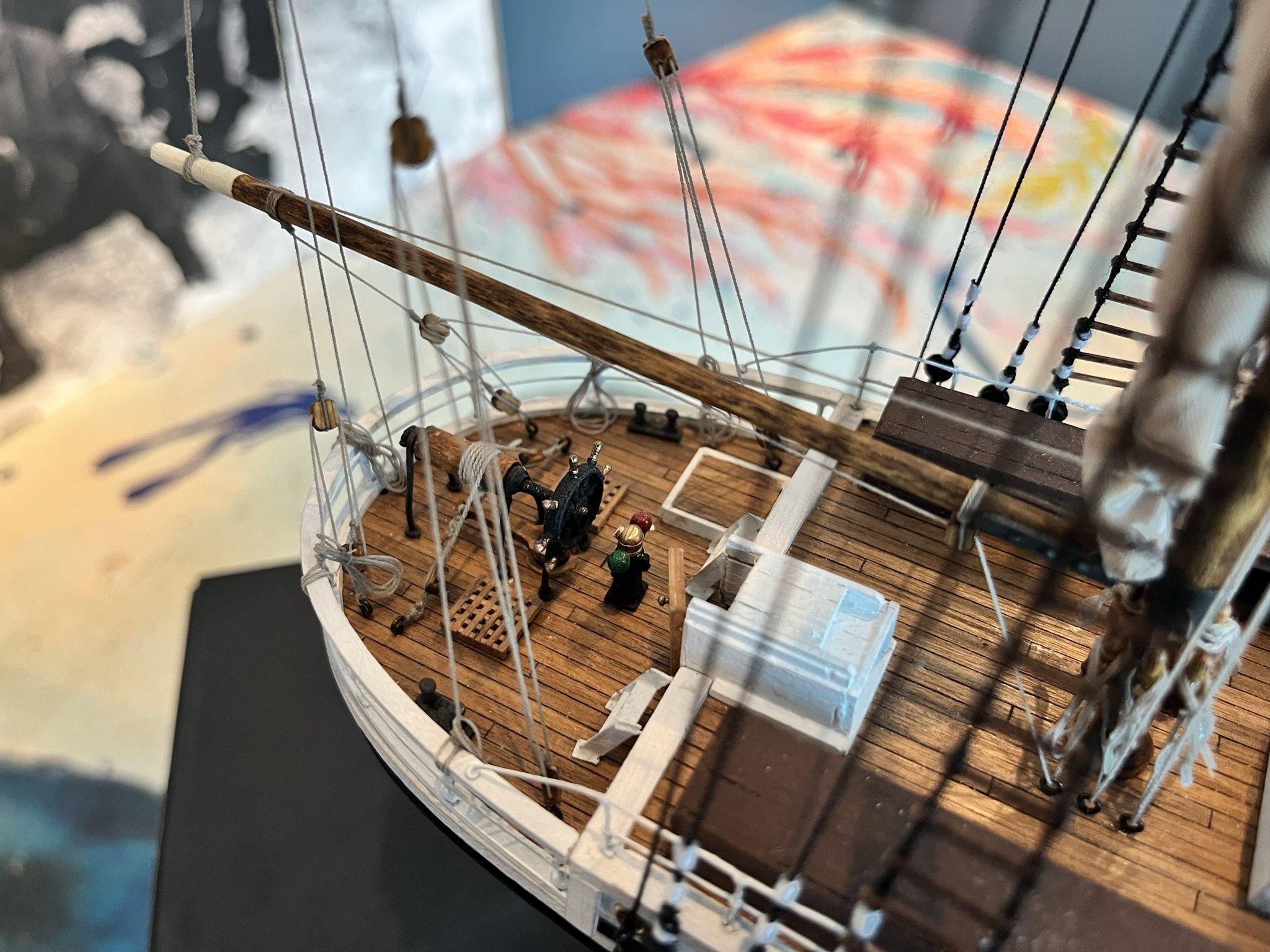
The scale model is made with precise detailing
Mr Vrubel said the ship's story resonated with him as he was making it: "Many times I mentally turned to the history of Sir Shackleton's expedition, and this gave me new strength."
He said the city had been subjected to daily bombardments for many months as he worked on it.
"Every night sirens howled and air raid alerts lasted three to five hours.
"Every night the sky and the earth were shaken by explosions. The fragments of downed missiles and drones are no less dangerous, as they fall and explode in absolutely unpredictable places.
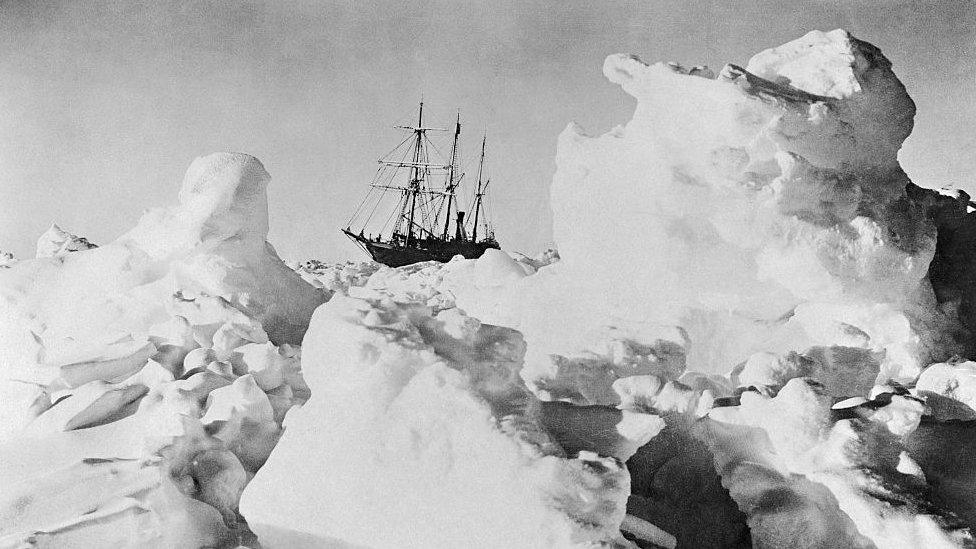
Shackleton's Endurance became trapped in ice in Antarctica in 1915
"There are no bomb shelters in the area where we live, and all that protects us is God and a slate roof over our heads. After three or four sleepless nights, you fall asleep simply from fatigue and don't care if they will kill you that night or if you will see a new day.
"For the creative process of building a ship model, a certain state of mind is necessary and very important. Everything that I briefly described above does not contribute to this.
"Many times I mentally turned to the history of Sir Shackleton's expedition, and this gave me new strength."
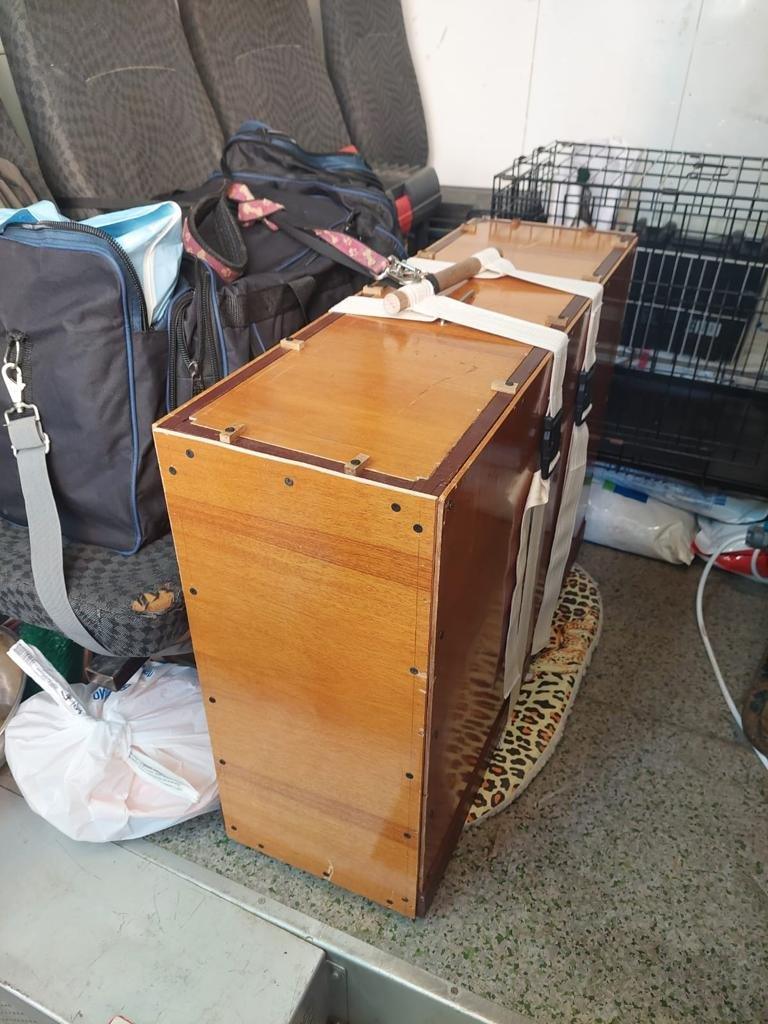
Mr Vrubel built a sturdy wooden box for the model
Frequent power outages added to the challenge, and it took more than a year to complete the model.
Soon afterwards, as the front line of the conflict got ever closer, Mr Vrubel and his wife decided to flee to Poland where they remain.
He constructed a robust wooden box to house the model, and left it in a building, hoping it could somehow be collected and transported across Europe.
The Journey
"There is no courier service for this type of job - we had no idea how we would get it back," said Lynne Raubenheimer, visitor engagement officer at the museum.
Help came in the form of Andy Evangelou who has been taking aid to Ukraine from Plymouth since war started.
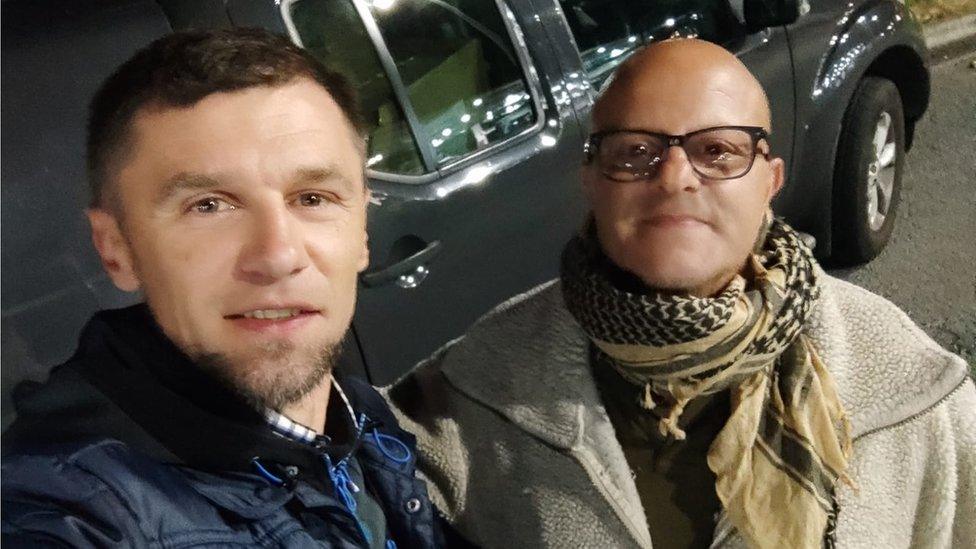
Maksym Litvinov and Andy Evangelou were in Ukraine taking much-needed medical and animal supplies
Mr Evangelou was willing to help collect the ship on his next trip, the seventh he has made during the war to take medical and animal supplies.
With Dnipro now in a so-called 'hot zone' it was unsafe to travel that far east.
Mr Evangelou left England in August with Maksym Litvinov, a Ukrainian man who had been living in Plymouth with his family because of the war.
They tried to find anyone who could offer a solution, and were eventually directed to speak to Lionel de Lange who runs a charity called Warriors of Wildlife that rescues animals, including zoo animals, from Ukrainian war zones.
He is a veteran of the South African military and was willing to travel to the city.
His journey in a repurposed British ambulance involved a five-hour diversion to avoid villages currently occupied by Russian forces.
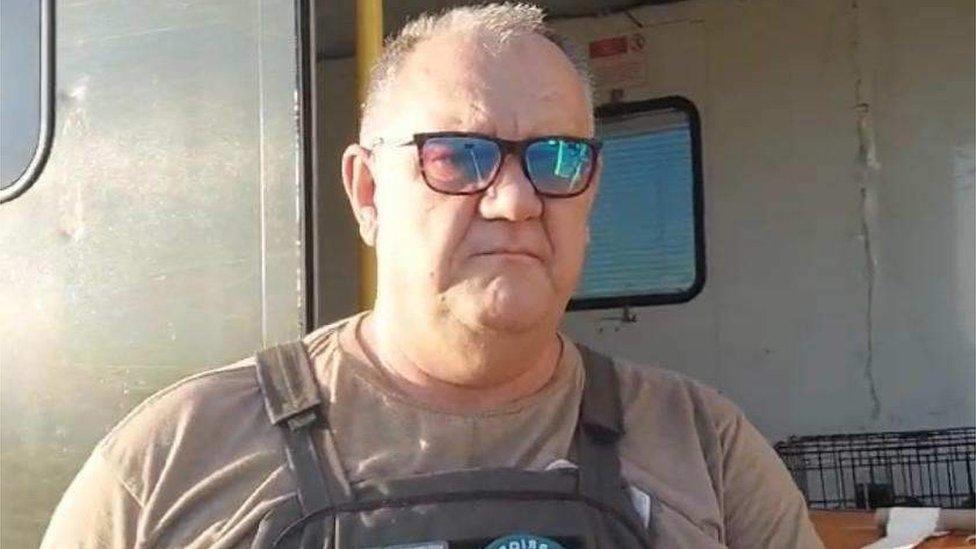
Lionel de Lange wore full military kit including a ballistic vest to enter Dnipro and collect the model
The exact location was kept secret by Mr Vrubel until an hour before Mr de Lange arrived, in full military kit and accompanied by a dog he called Bella he had rescued from a blast site.
Mr de Lange said: "I was asked to go to the east of Ukraine to a very hot zone to pick up this box.
"We picked it up in a really really hot area - there was continuous shelling... so we hope a lot of people get a lot of pleasure out of it."
He then drive 310 miles (498km) to Kyiv, where he met Mr Evangelou and Mr Litvinov at a safe house. He handed over the model, and they passed on some donated supplies.
Ukrainian Mr Litvinov moved to Plymouth with his family to flee the war, and they are staying with retired vet Edmund Shillabeer who set up the project to send aid to those who need it., external
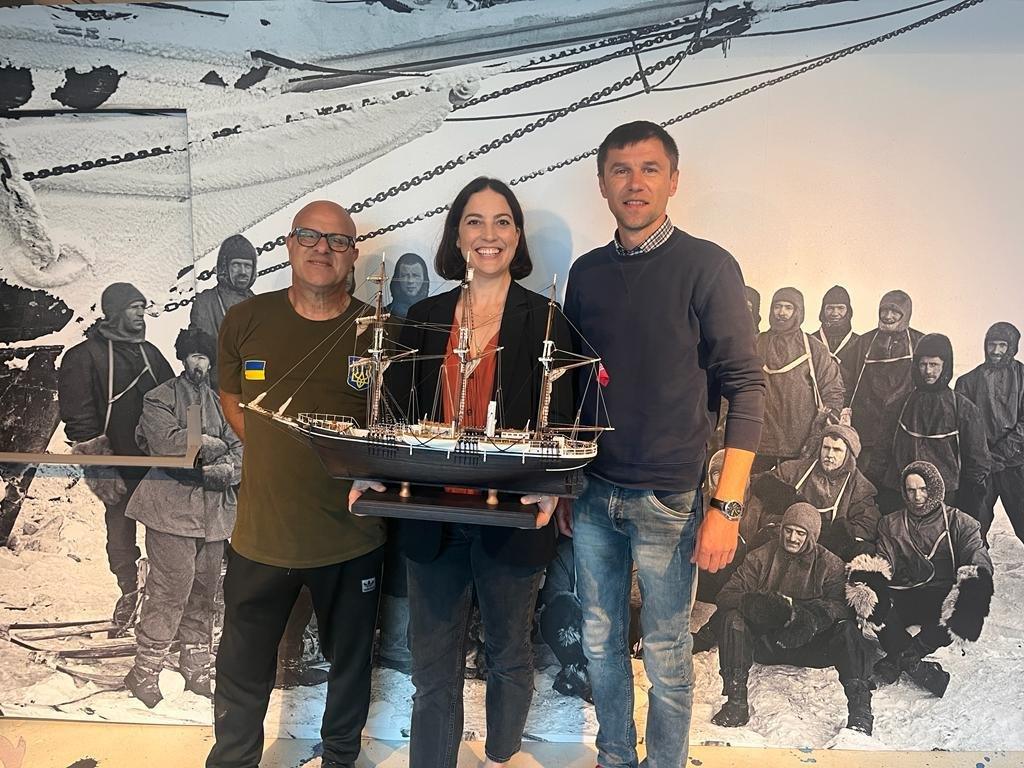
Andy Evangelou (left) and Maksym Litvinov delivered the ship to Lynne Raubenheimer at the museum after transporting it from Ukraine
There were nervous moments as they passed through check-points and borders, but the box remained sealed until it had been driven all the way to the museum - the end of a 2,000-mile (3,800 km) journey.
Mr Litvinov said: "I'm very proud it has been made by a Ukrainian man."
What next?
The model is to form the centre point of a new exhibition at the museum from March 2024.
Ms Raubenheimer said: "The model is going to be stored away safely for a few months and we are going to be getting ready for March 2024 when we are going to open a brand new exhibition.
"It is going to be centred around a comparison between the endurance that Shackleton and his men had to be able to survive two years on the ice, and the endurance that our volunteers had to be able to retrieve it - as well as the endurance of the Ukrainian people."
The museum said it hoped all of those involved in making and transporting the model may be able to visit when it is on display.

Follow BBC News South West on Twitter, external, Facebook, external and Instagram, external. Send your story ideas to spotlight@bbc.co.uk.
Related topics
- Published18 July 2022

- Published10 March 2022
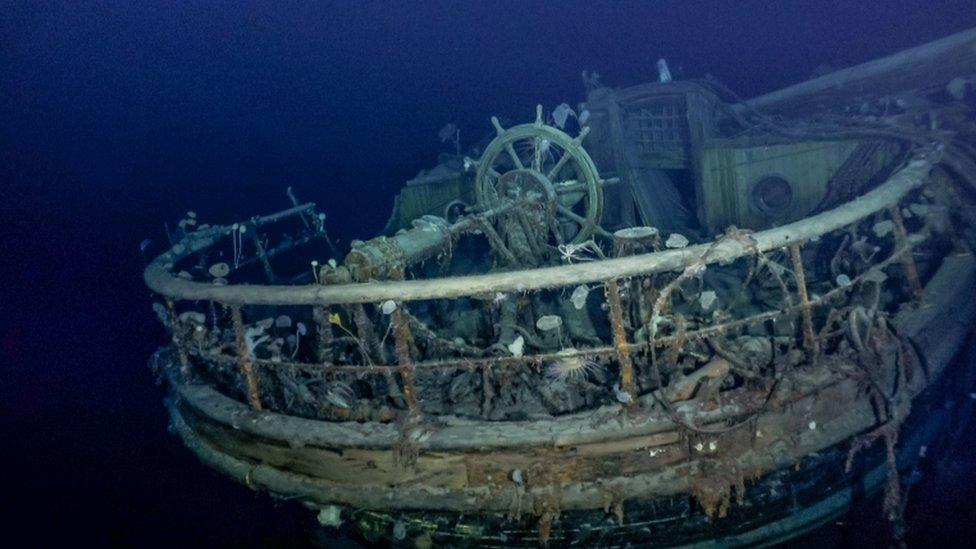
- Published9 March 2022
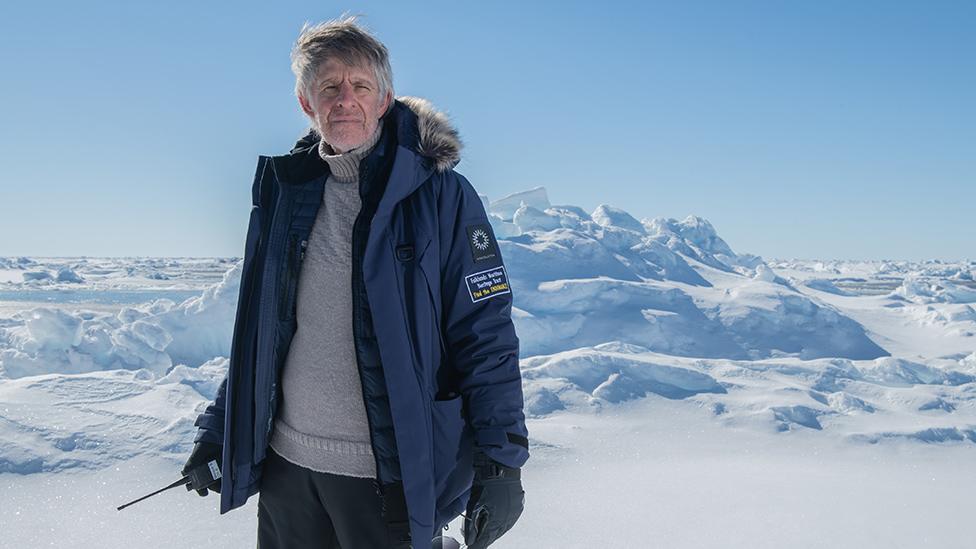
- Published7 January 2022
